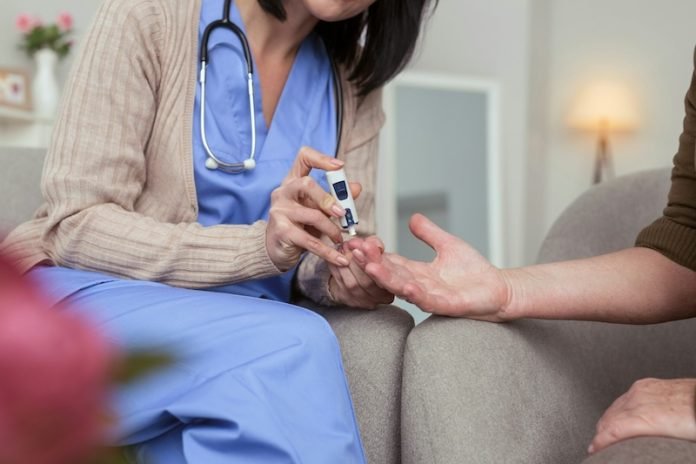
Low blood sugar, also known as hypoglycemia, can be a frightening experience, especially for those managing diabetes.
When blood sugar levels drop below normal, it can cause a range of symptoms including shaking, sweating, confusion, and even loss of consciousness.
Understanding how to quickly and effectively treat these episodes is crucial for anyone at risk.
This review provides an overview of the recommended strategies for handling low blood sugar emergencies, ensuring that those affected can take swift action to safeguard their health.
Hypoglycemia typically occurs in people with diabetes who take insulin or other glucose-lowering medications, although it can happen in other situations as well.
The body and brain rely on glucose as their main source of energy, and without enough glucose, normal functioning begins to shut down.
Immediate Treatments for Hypoglycemia
The first step in treating low blood sugar is recognizing the symptoms. Common signs include dizziness, hunger, irritability, fatigue, and a rapid heartbeat. When these symptoms occur, it’s important to act quickly.
The quickest way to raise blood sugar levels is by consuming fast-acting carbohydrates. The “15-15 Rule” is a well-established method to treat hypoglycemia: consume 15 grams of simple carbohydrates and check blood sugar after 15 minutes.
If it’s still below 70 mg/dL, another 15 grams should be consumed, and the process repeated until normal glucose levels are restored.
Examples of fast-acting carbohydrates include:
- Glucose tablets or gels, specifically designed for hypoglycemia.
- Fruit juice or regular soda (not sugar-free), about 4 ounces.
- Honey or regular table sugar, about a tablespoon.
- Hard candies, jellybeans, or gummy candies.
These sources of sugar are absorbed quickly into the bloodstream, providing a rapid increase in blood sugar levels.
Longer-Term Management After Initial Treatment:
Once blood sugar returns to normal, it’s important to consume a more substantial food item that includes protein or fat to stabilize blood sugar and prevent another drop. This could be a small snack, like crackers with peanut butter or a half-sandwich.
Preventive Strategies
Managing medication doses, meal planning, and timing are crucial to prevent hypoglycemia. Individuals on insulin or other medications should work closely with their healthcare provider to adjust doses appropriately, especially if their eating habits, exercise routine, or weight changes.
Regular monitoring of blood sugar levels is essential, particularly for those who take insulin. This helps to identify patterns of low blood sugar and adjust treatment plans accordingly.
Educational and Supportive Measures
Education on the proper techniques for recognizing and treating hypoglycemia should be a regular part of diabetes management.
Family members, friends, and co-workers should also be informed on how to help in case of an emergency, including how to use glucagon kits, which are used to treat severe hypoglycemia when the individual cannot consume sugar orally.
Glucagon kits are available by prescription and can be administered as an injection or nasal spray. They work by stimulating the liver to release glucose, raising blood sugar levels quickly.
Conclusion
Managing low blood sugar promptly and effectively is crucial for those at risk of hypoglycemia. Quick action with fast-acting carbohydrates following the “15-15 Rule,” followed by a stabilizing snack, can safely restore blood sugar levels.
Regular monitoring and medication management, combined with education and supportive strategies, form the cornerstone of preventing severe hypoglycemia.
Understanding and preparedness are key in ensuring safety and maintaining health in individuals susceptible to low blood sugar episodes.
If you care about diabetes, please read studies about Vitamin D and type 2 diabetes, and to people with diabetes, some fruits are better than others.
For more information about diabetes, please see recent studies that low calorie diets may help reverse diabetes, and 5 vitamins that may prevent complication in diabetes.
Copyright © 2024 Knowridge Science Report. All rights reserved.



